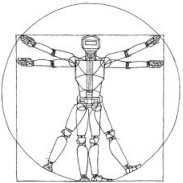Robotics: Science and Systems XIV
Efficiently Sampling from Underlying Models
Greydon Foil, David WettergreenAbstract:
The capability and mobility of exploration robots is increasing rapidly, yet missions will always be constrained by one main resource: time. Time limits the number of samples a robot can collect, sites it can analyze, and the availability of human oversight, so it is imperative the robot is able to make intelligent actions when it comes to choosing when, where, and what to sample, a process known as adaptive sampling. This work advances the state of the art in adaptive sampling for exploration robotics. We take advantage of the fact that rover operations are typically not performed in a vacuum; extensive contextual data is often present, most often in the form of orbital imagery, rover navigation images, and prior instrument measurements. Using this context, we apply Bayesian and nonparametric models to decide where best to sample under a limited budget, using real X-ray lithochemistry data. We find that our methods improve both the diversity of samples collected as well as select samples that are representative of the dataset. We find that model-based approaches made scalable with Dirichlet processes improve sampling results when the underlying number classes and class distribution is unknown. Unlike previous works, our approaches reduce the impact of noise on sampling location, a common problem when selecting samples based on noisy or incomplete contextual data.
Bibtex:
@INPROCEEDINGS{ Foil-RSS-18,
AUTHOR = {Greydon Foil AND David Wettergreen},
TITLE = {Efficiently Sampling from Underlying Models},
BOOKTITLE = {Proceedings of Robotics: Science and Systems},
YEAR = {2018},
ADDRESS = {Pittsburgh, Pennsylvania},
MONTH = {June},
DOI = {10.15607/RSS.2018.XIV.057}
}
